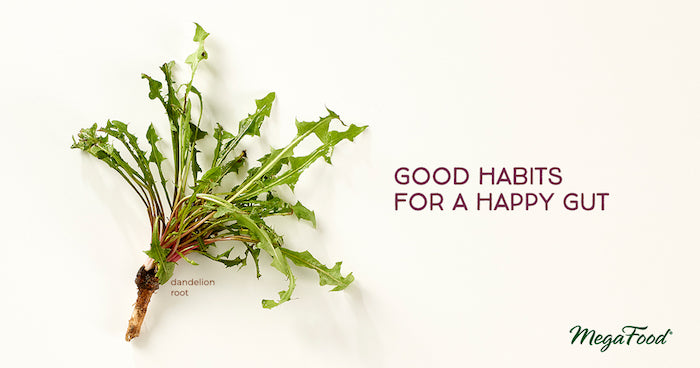How can I support my childs health?*

Killeen McGowan | February 2019
Resisting the bubble
There are some things in life we can’t control, and no one knows this better than a parent! I, too, am guilty of wanting to put my children in a bubble; to keep them safe from harm and protected from every undesirable circumstance in the universe. I suppose I could try, but I’m also aware of the importance of letting my kids be… kids. And so it goes.
Fine tuned control
On the flip side, there are some things that we as parents can control. Though I get the creepy crawlies just thinking about the bacteria present in my son’s daycare, or my daughter’s elementary school classroom, I can find peace in knowing we have the ability to arm our kids with their own helpful and protective bacteria. I’m talking about the good,
Here’s what I learned from MegaFood’s on-staff Naturopathic Doctor, Erin Stokes:
A vast, inner world
The research into the role of the vast and complex human microbiome continues to steam ahead, and the findings shed even greater light onto probiotics’ role in digestive health. As probiotics generally take up residence in the gut, it’s no surprise that this is the place where their presence, or lack thereof, is first felt.
Our digestive tracts are home to over 5000 different species of beneficial bacteria, all of whom perform specific functions within our body (LiveScience). In addition to helping us digest our food and absorb the nutrients within it, this colony of probiotic microbiota are our biggest defense against illness. If you can believe it, over 70% of our immune response resides within our gut!1
Beyond this role, however, science continues to link the health of our microbiome to things such as allergies2, and even lend credence to the phrase “gut reaction,” demonstrating a link between the health of our friendly crusaders and the brain!3 It begins to make sense, then, why these helpful bacteria, so important to our health and well-being, are called what they are - probiotic - literally meaning for life!
Your child’s invisible allies
Unfortunately, picky eating, and an abundance of refined foods, doesn’t make for a strong microbiome. Our Standard American Diet lacks both diversity, and an emphasis on the fresh, whole, and fermented foods that nourish and grow our probiotic army, a.k.a., your child’s “invisible allies.” The good news is, there are great ways to get probiotics back into your child’s diet, and into his gut where they belong!
Food first…
First, consider foods that are rich in probiotics. Traditionally fermented foods, such as sauerkraut, yogurt, and pickles are great options to start including in you and your child’s daily diet. Look for the words ‘fermented’ or ‘traditionally fermented’ on the label, and make sure they come from the refrigerated section, as probiotics are living, and many strains require cooler temperatures to stay alive.
… and a supplement for balance
In addition to fortifying the diet with these good-for-the-gut foods, a probiotic supplement is another convenient choice. For children, you’ll also want to look for a kid-specific probiotic formulation. Us adults have a lot of options- which can be overwhelming - here's a blog to help narrow down the choices when it comes to finding the perfect probiotic supplement for your personal needs.
Believe it or not, there are formulations that combine probiotic strains and carefully selected additional ingredients, which work in tandem to support additional areas beyond digestion, like healthy energy production, and reduced stress and fatigue.* Isn’t it fascinating that a probiotic supplement can do all that? If your mind is spinning too, you might enjoy embarking on your own digestive health expedition- moms and dads need to stay healthy, too, after all!
Begin your journey to better digestive health.
1 Clin Exp Immunol. 2008 Sep; 153 (Suppl 1): 3–6. Allergy and the gastrointestinal system G Vighi,* F Marcucci,‡ L Sensi,‡ G Di Cara,‡ and F Frati‡
2 Allergy Asthma Clin Immunol. 2015; 11: 35. The human microbiome, asthma, and allergy. Amund Riiser
3 Nutr Rev. 2018 Jul 1;76(7):481-496. doi: 10.1093/nutrit/nuy009. Relationship between the gut microbiome and brain function. Mohajeri MH1, La Fata G1, Steinert RE1, Weber P1.



Leave a comment
This site is protected by hCaptcha and the hCaptcha Privacy Policy and Terms of Service apply.